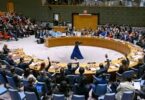Speaking at the ground breaking ceremony of Azakhel Dry port, Prime Minister Imran Khan once again expressed firm resolve to put an end to the in vogue two parallel systems of justice, one for the rich and other for poor people. For the realization of this goal amelioration of lot of the downtrodden will be central to every government policy and culture of nepotism and violation of merit shall be eliminated. He expressed optimism that government will start its march towards the establishment of a welfare state in the year 2020 during which the launching of housing schemes will provide support to 14 industries, generating numerous employment opportunities. The Prime Minister referred to the fallout of hemorrhaging public sector corporations which devour Rs.500 billion tax revenue which is being paid by the people.
Comparing the Prime Ministers earnest desire that comes from the core of his heat with the recent reports of the central bank and the World Bank on the state of economy in the next three year, the year 2020 may not prove a harbinger for a positive change for the people in general. There is almost unanimity in the assessments of the State Bank and the World Bank that economic growth rate will remain lower than 4 percent whereas the Planning Commission report of the previous year suggests that for generating fresh employment pursuit for achieving GDP growth rate of 7 percent is inevitable. It was over 7 percent sustained economic growth in the decade of 1960s wherein full employment level had been attained and during 2000-07 the same amount of spurt of the economy with the help of domestic and foreign investment had substantially improved the employment situation.
The culture of nepotism and violation of merit is still all pervading in the governing system save the merit based recruitment policy in the elementary and secondary education. The maximum incidence and impact of taxation is on poor people. It remains to be seen how far the relief package of Rs.7 billion allocated for subsidy on food commodities to consumers on utility stores and health card will benefit the common man.
Although by simplifying and streamlining certain regulatory procedures Pakistan’s ranking has improved from 136 rank to 108 in the World Bank Ease of Doing Business index yet the prevailing economic environment is still unfavourable for investment, output and employment. High rate of interest has resulted in credit squeeze. Highest in the region electricity and gas tariffs is confounding the problems of manufacturing sector every month. Despite the repeated demands from the trade bodies formulation of long-term industrial policy is on the backburner. There are no indications of implementing skill development programmes in the foreseeable future except hollow rhetoric. There is total neglect of higher education, research and development in terms of budgetary allocations. Taxation regime is complex and highly regressive. The economic models which had been pursued by the South East Asian developing countries for improving business environment need emulation, the salient features of which had been highlighted by the Malaysian Prime Minister Mahatir Mohammad in a speech during his visit of Islamabad last year.
Starting the construction work on the abnormally delayed Azakhel dry Port project is worth appreciation. It was conceived in 1998 but could not materialise due to indifference shown by the previous governments notwithstanding big boost that trade will get in future to Afghanistan and Central Asian States. The facility of keeping open the Torkhanm outlet of regional trade round the clock has resulted in increase of exports worth Rs.70 billion during the past few months. But the dry-port will be humming with trade activities only when railway up-gradation ML-1 project is implemented and number of goods trains is increased, reducing greater dependence on road transport. Let us hope, polices which Prime Minister has referred to in his speech will see the light of day and shall be honestly implemented on time.






